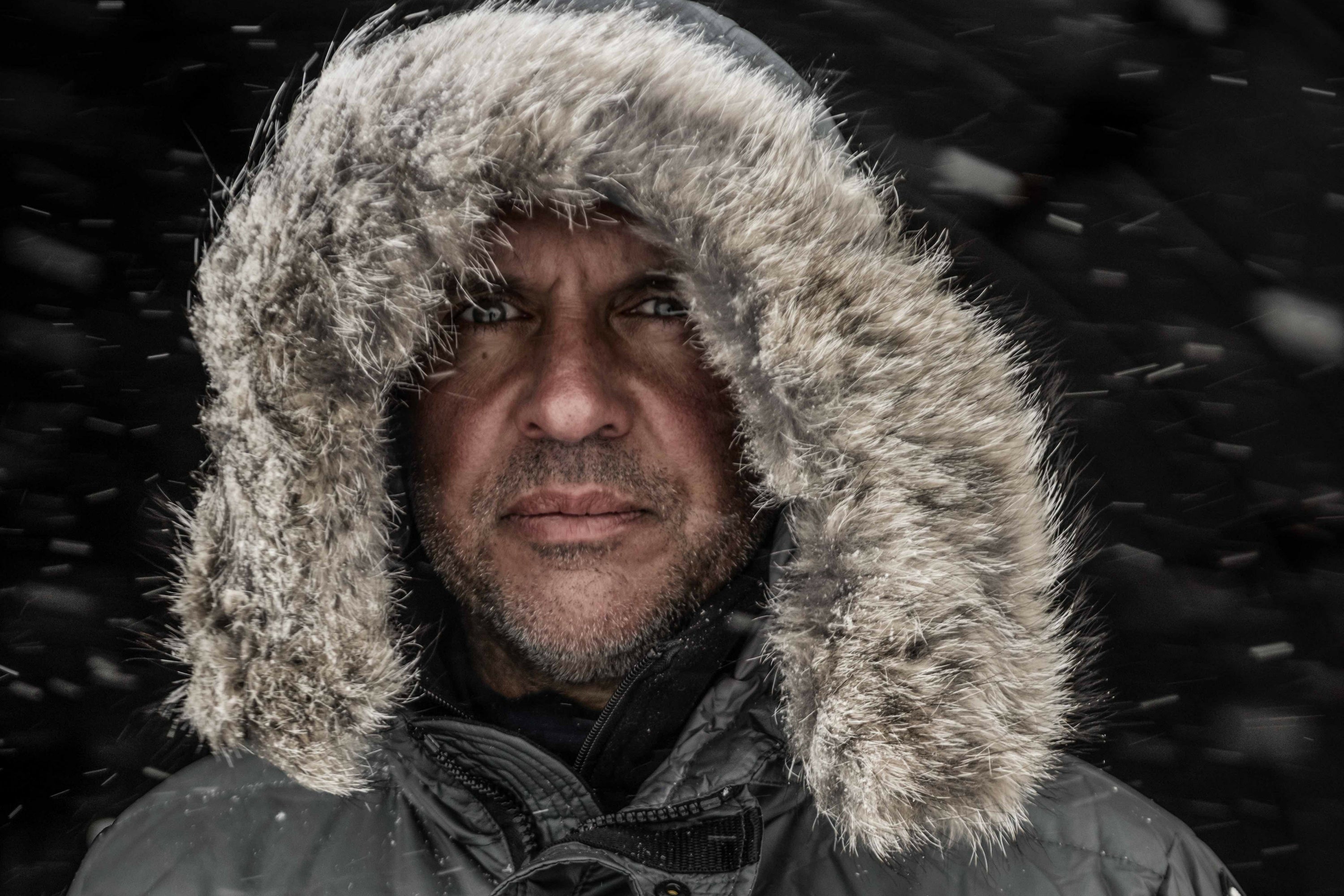
A Mind In Extremis
Dr Nathan Smith analyses Lou Rudd’s expedition mindset during his solo crossing of Antarctica. Words by Dan Struthers.
Captain Lou Rudd is trudging into Antarctica’s heartland, confronted with an isolation that few of us could ever imagine. He is in the thick of something no one has ever done, alone in a frozen landscape untouched by human influence. For Dr. Nathan Smith – a senior research scientist in the psychology of performance and health in extreme environments – Rudd has become the perfect case study.
Throughout his career, Smith has examined the world’s most durable minds. He’s delved into the experiences of astronauts and military personnel to explore how minds react under severe pressure. Last year, when Rudd led the SPEAR17 team of army reservists through a successful traverse of Antarctica, Smith followed the expedition closely and analysed the roles each individual played along the way. He found one anomaly amongst the group.
“If you look at the personality profiles of that team,” Smith explains, “Most of the other guys were at the higher end of the extrovert scale. Rudd was much lower down – much more introverted.”
Through his research Smith has discovered that self-awareness and humility are amongst the most important qualities required for survival. Rudd displayed these specific virtues in abundance. He was highly conscientious, with a unique work ethic that was inherently non-competitive. He also displayed a quiet willingness to undergo extreme stress and physical exertion, suffering the demands of Antarctica with quiet resilience. These qualities convinced Smith that Rudd was well-equipped for 75 days of solitude.
'Smith has discovered that self-awareness and humility are amongst the most important qualities required for survival...’
Since the Spirit of Endurance expedition began Smith has monitored and analysed Rudd’s audio dispatches, dissecting different nuances in mood and communication, picking up linguistic cues to create an overview of his in-expedition mindset. This time, without the pressure of leading a team, Rudd is having to stomach an entirely different cocktail of emotion.
“It could be less of a burden,” Smith said, “He’ll have a bit more autonomy and control over how far he goes and what decisions he makes.”
Of course, being in isolation presents Rudd with different psychological challenges – “On the flip side,” Nathan explains, “You don’t have the motivation of not letting someone else down. So there’s an interesting dynamic.”
The dynamic became even more interesting when American Colin O’Brady revealed that he’d be attempting the same crossing at the same time. So in fitting polar spirit the race is now on. Rudd’s mindset will of course be changed by this element of competition. To deal with this Rudd has stated that he will stick to his own pace and not allow himself to be drawn into the race. Both explorers will also remain isolated from each other to maximise the solo experience.

S O L I T U D E
On the ice Rudd will be isolated from human contact in the middle of a deserted continent. He will experience what other solo Antarctic explorers refer to as being “truly alone”. This is a very specific form of seclusion. Antarctica is an unpopulated wilderness shaped by sweeping frozen scenery in all directions. These scenes might sound appealing, but they do have a visceral impact on the body and mind.
“Imagine just looking at a white wall for 50 days,” Nathan says, “The impact that has on your ability to process information and react is hugely impaired.”
The relentless sensory overload of the Antarctic whiteness – what New Yorker journalist David Grann termed ‘The White Darkness’ – can lead to severe bouts of boredom and depression. It’s not the ideal walking companion when every footfall could become a final death knell.
“The monotony thing is really interesting,” Nathan reflects, “That’s another thing we hear from polar expedition goers a lot – the repetitive nature of putting one foot in front of another.”
Factor in the repetitive scenery and cyclical whiteness and you have a dangerous lack of mental stimulation. This increases the explorer’s chances of fatigue. The infinite white also plays tricks on the mind and cognitive behaviour can become impaired. Deprived of sensory information, laden with a high-level fatigue, the explorer can quickly lose their ability to perform simple tasks. If the spiral continues, the mind and body can shut down altogether.
E N D U R A N C E
Nathan outlines the threats Rudd will face in the two and a half months he’ll spend alone in Antarctica. He will need to employ different mental tactics to counteract stress and maintain a sense of control.
“Coping mechanisms are definitely learnt,” Nathan says, “These things are skills we can develop, so someone like Lou has probably developed loads of these over the years and doesn’t even realise that he has got them in his toolbox. In Antarctica it’s not possible to change the situation, so we have to modify the way we think about the environment as a way of coping.”
Remember that Lou has survived Antarctica before. It’s likely he will employ similar performance methods against the unrelenting whiteness, wherein spindrifts, crevasses and sastrugi are ever-present dangers… Mentally Rudd has already put everything he values at the finishing line. He views every day as a means of getting closer to those things he values most. Friends, family and the collective dream of his polar heroes.
In a recent log, Lou stated: “I feel like I’ve turned a corner now with the journey, I’ve become more immersed in it and just completely focused on the journey and Antarctica. The more I can immerse myself in it the better… and get on with it.”
After all the talk of psychological trickery, the secret to Rudd’s progress so far can be found in the sign-off he uses at the end of each log –
“Onwards…”
All his discipline and concentration pivots around this simple call to arms. Rudd just has to keep moving forward, putting one foot in front of the other. It’s the only way he will reach that box waiting for him at the finish line. It’s the simple beat behind the greatest symphonies of Polar exploration, from Scott to Shackleton, from Worsley to Rudd…
“The types of motivations, the reasons, the passion for doing it…” Smith says, “In that 100-year timeframe I don’t think any massive evolutionary changes have happened in our biology that means we’ve very different from each other. I think it’s still a question of testing your own limits, testing something that is unique, and testing, from the edge, what’s possible.”
Many have sought to traverse Antarctica over the years. While the equipment may have improved dramatically, the psychology of explorers remains quite unchanged.
“I’ve chatted to [Rudd] a fair bit and I always find him very approachable,” Smith concludes, “He’s very amenable – a good guy who’s very clearly good at what he does. That’s the key: be good at what you do and be decent and you’ll probably do alright.”
(At time of writing 13/12/18) Lou is on schedule to reach the South Pole today. He has now hit a rhythm and continues to make great progress. Each step is a gesture of resilience – a reminder to the world, and to all of us, what human endurance really means.

